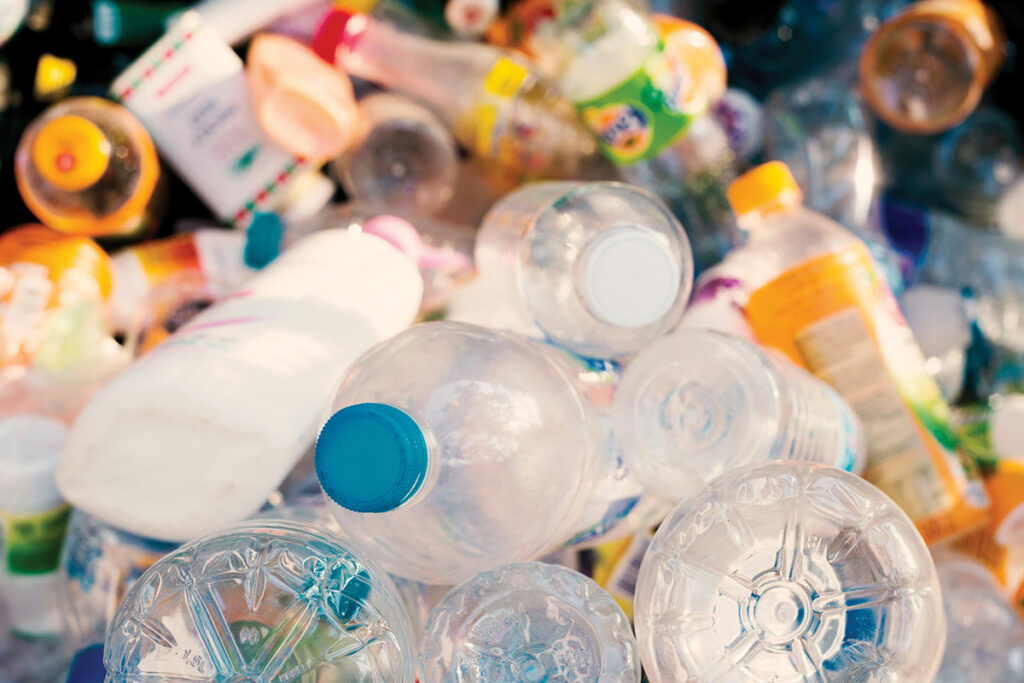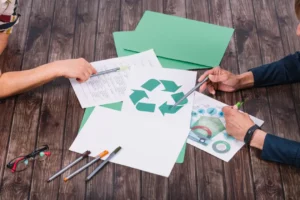Plastic recycling is a process of turning waste plastics into new products. This not only helps to reduce plastic pollution but also has the potential to create economic benefits. By reusing and repurposing plastics, businesses can save money on production costs and increase profits. Furthermore, recycled plastic materials can be used to manufacture various products, from furniture to electronics. This helps to create new jobs and stimulate economic growth in local communities.
Have you ever wondered how or why recycling plastics saves money? Recycling plastic reduces the need to purchase new materials. This can save both time and money in production costs because recycled materials can be used instead of buying raw materials. This can reduce production costs and help companies to be more competitive in the global market. Other than that, plastic recycling has many incredible benefits, including but not limited to energy savings, cost savings, job creation, & much more.
How Can Plastic Recycling Offer Better Energy Savings?
Recycling plastic means that we don’t have to make new materials. We can use the same plastic over and over again. This saves energy and money because we don’t need to buy more materials to make new things. Not only does recycling plastic help the environment, but it also provides jobs and economic growth in communities that utilize recycled materials.
With recycling plastics, you don’t have to extract any new materials, and therefore, it saves up on the energy required for the extraction. Instead, the energy which is used is normally just to melt and reform the existing plastic, which is considerably less compared to the extraction process. For example, according to a study by the American Chemistry Council, recycling one ton of plastic can save energy equivalent to 5,774 pounds of oil. Plastic is normally made from fossil fuels, and recycling it can reduce the need for its extraction from the earth.
In another study conducted by the Institute of Scrap Recycling Industries, it was found that recycling one ton of plastic can easily save the energy equivalent of 1,000 kilowatt-hours of electricity. Now that’s the same amount of energy required to power up an average American home for six months or even more. Besides, recycling plastic can also save energy by reducing the need for transportation during the shipping process of raw materials to factories; recycling facilities can use locally sourced plastic waste, thus reducing the need for transportation.
As a result, there’s less carbon footprint of manufacturing and reducing the pollution caused by transportation.
How Can Plastic Recycling Save Up Cost?
One of the important things to consider about producing new plastic is the cost involved in purchasing the raw materials. Several important raw materials, such as oil and natural gas, go into the production of plastic. These materials are growing more & more expensive with time, which makes cost estimation for producing new plastics unpredictable. On the other hand, recycling plastic allows companies to save up on the cost of raw materials.
Recycled plastic can also be sold at cheaper rates in comparison to new materials. This helps companies to save on the cost of purchasing materials and waste management, as recycling plastic is becoming an increasingly popular option for businesses that want to reduce their carbon footprint. Moreover, when a company uses recycled plastic, less waste is generated. This ensures that the company isn’t unnecessarily using up its resources while still providing the same quality products.
Plastic recycling can also help save money on disposal costs. Many plastic recycling companies can simply avoid sending the waste to landfills. Instead, they simply collect, process, and use the new products. This enables them to cut down on the transportation and disposal costs associated with sending materials to landfills.
How Can Plastic Recycling Introduce More Jobs Into the Market?
When we recycle plastic, it creates new jobs in the recycling and manufacturing industries. Labor is required to go places and collect the plastic, which will be needed for processing and making new products. There are also transportation and logistics involved in the process of plastic recycling. This includes collecting, sorting, and shipping the recycled materials. As a result, more people are employed to transport recycled plastic material between destinations.
Plastic recycling introduces more work opportunities within the industry. Industries such as construction, automotive, and electronics require recycled materials for their products.
All of this can lead to an increase in job opportunities within these industries and more.
Concluding Thoughts
All in all, plastic recycling is an essential strategy that can reduce the environmental impact of plastic by a significant margin. It can also promote the industry’s sustainable development and conserve the natural resources required for plastic extraction. Additionally, it can save costs and provide more work opportunities within the industry. Hence, recycling plastic is an essential part of preserving our environment, stimulating economic growth, and, at the same time, creating opportunities for unemployment and poverty.







